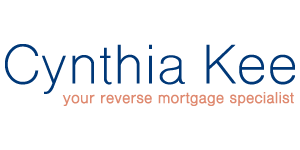5 Questions Homeowners Are Asking Before Retiring
Live life as if everything is rigged in your favor. ~ Rumi
# 1 RETIREMENT READINESS
One facet that’s typically ignored in favor of crunching numbers is psychological preparedness. Newly retired individuals can begin with feelings of excitement and anticipation only to fall into a morass of depression, anxiety, and restlessness. Aging expert and author Sources of Income/Cashflow says, “people spend more time planning a wedding than planning retirement. It’s very important to think about your identity and what you’re losing, and how you get a new identity. What would give you a sense of meaning and purpose?”
Next is financial readiness which is typically determined by creating a post-employment budget. This will include reliable sources of monthly income throughout your retirement years. The good news is expenses may be considerably less when factoring in you’re no longer raising children or incurring ongoing costs related to employment such as transportation.
It’s not a mistake that the age of eligibility for the federally-insured reverse mortgage is 62. Americans in their sixties begin to seriously consider the merits of continued full-time work against the rewards of a more leisurely lifestyle.
WORRY LESS, LIVE MORE
How could eliminating your mortgage payment change your life? No Mortgage Payments, Tax-Free Money, Bills Paid & Cash on Hand!
Contact Cynthia today by clicking the link below to learn more about Reverse Mortgage benefits.
#2 SOURCES OF INCOME & CASH FLOW
Some may decide not to completely disavow employment and instead find part-time work. One retiree I know took a job at the local historical society- a job she finds much more enjoyable than her previous career. Typical income sources are defined pension benefits, investment dividends or distributions, royalties, Social Security, and distributions from 401(k)s and IRAs. The magic of the reverse mortgage is that it can help close many gaps in monthly cashflow that are often found when considering retiring. A portion of the home’s illiquid value is converted into an available standby line of credit, monthly tenure payment, or simply retires the burden of an existing monthly mortgage payment.
#3 SOCIAL SECURITY
As the ratio of retirees to active workers continues to grow Uncle Sam has moved the goalposts over the years with those born before 1938 being able to take full benefits at the age of 65, and younger retirees seeing a graduated reduction based on age. Some look to not only their need for the monthly benefit but their likely life expectancy with those in poorer health opting to start sooner rather than risk dying before collecting a full benefit. I'm partnered with some amazing financial planners and can give you a recommendation if you need help exploring the right plan for you and your family.
#4 MEDICARE
Fewer workers are retiring with a medical insurance benefits package. The good news is they can enroll in Medicare at the age of 65 and purchase a Medicare supplement policy that is typically much less expensive than the private insurance premiums they would pay individually.
#5 REQUIRED MINIMUM DISTRIBUTIONS
Did you know that while 401(k) and IRA deductions reduce taxable income distributions must be taken to avoid penalties, in many cases up to 50%! For decades retirees had to begin taking distributions or payouts from these accounts at the age of 70 1/2. However, thanks to the 2019 SECURE Act and increasing life expectancy that age is 72. Some younger retirees in their early sixties have postponed taking money to avoid more taxable income from these accounts while allowing them to grow by using a reverse mortgage. Either way, the money must be systematically withdrawn.


